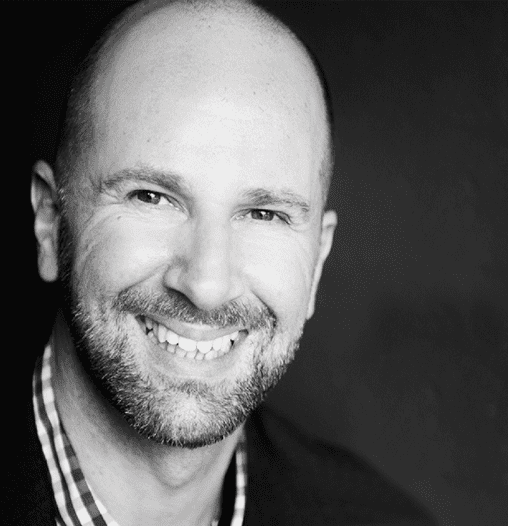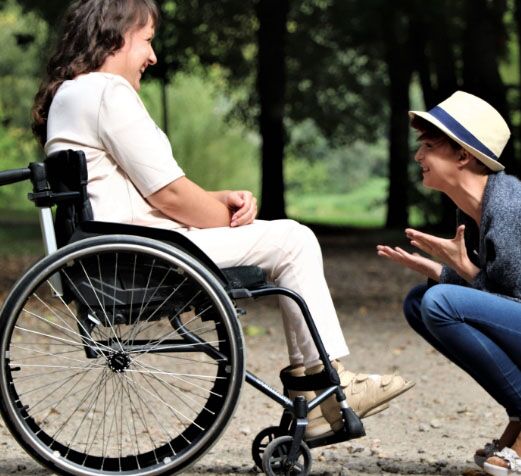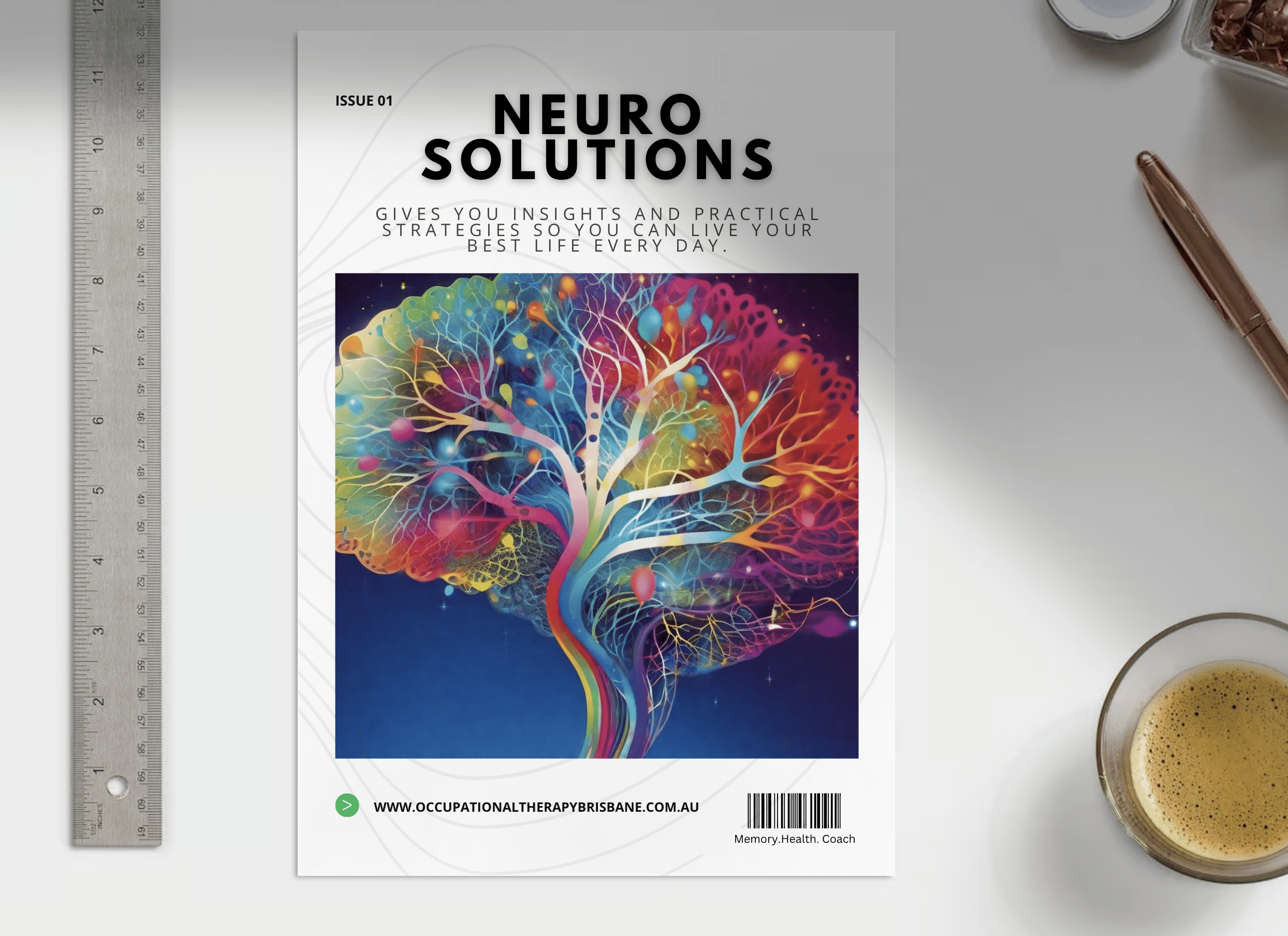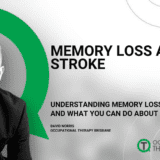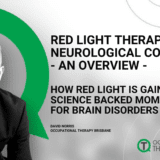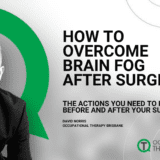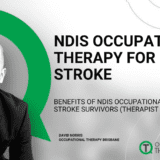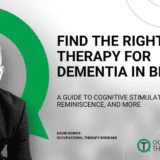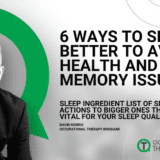Recovery After Stroke
Years after a stroke, is it too late to improve? Recovery after stroke is commonly a long journey.
If you’re like most people and families who experience a stroke, one of the common expectations is to achieve a full functional recovery within the first 3 to 6 months.
It’s clear rehabilitation after a stroke starts at hospital, right away but when does it stop?
For some people the next step in their stroke recovery will be in the rehabilitation environment be it as an inpatient or an outpatient. Your stay in rehabilitation may be weeks to months.
But when it’s all said and done, 6 months to 12 months later you’re at home with the symptoms of your stroke to some degree and you may be wondering- is that it?
Now what? Should you be doing something about your stroke symptoms after a year, 2 years or even 5 years?
We’ll often hear clients and carers say, “we want to know can we be doing something, we want a plan, we want to be active in our recovery, or we feel we’re slipping through the gaps” Is this your situation?
For us, we often see these experiences.
So, to answer your question, is it too late?
No it’s not. But, to frame the answer more specifically you need to ask: what do you want to achieve, what are your rehabilitation goals?
You see, your stroke will affect you in your own individual way. It may include cognition, emotion, physical, sensory and perception factors. And how this plays out in your life, in everyday activities through to your daily work tasks will be your own experience.
So, to help you in your journey, we’ve put together a list of 7 Resources For Your Recovery One Year (Plus) After A Stroke.
1.Recovery After A Stroke & Returning To Work
The pathway back to work after a stroke can be a daunting at the beginning and as it progresses it can present you with a few curve balls.
Keep in mind, your journey back to work is entirely your individual experience.So, having the right information, resources and support around you to help build your plan is important to achieving a successful outcome.
It’s likely before going back to work you’ll have a few questions which you probably want answer to, such as,
- Can you go back to work full-time or part-time?
- Your doctor has given you clearance for light duties, but, how does your stroke affect your ability to perform the work?
- Can your work be modified? Can you transition back into work?
- Are you confident that your employer can help with your return to work and stroke recovery
- Can you drive to work?
- Can you catch public transport to and from work?
In Australia, if you need help consider approaching Centrelink, your employer human resources and operational management team, your insurer, and your GP especially if you’d like to access other allied health services like us at Occupational Therapy Brisbane or neuropsychologist service.
The federal government’s Job Access Service offers free information about employment of people with disability. The national stroke foundation also offers free information and resources see their fact sheet on returning to work after a stroke.
2. Important Factors Every Care Giver Should Know About The Stroke Recovery Journey
The stop start, up down, rapid- slow, are we going backwards? Experiences in the stroke recovery journey is familiar across most people in a caring relationship with a stroke survivor.
These key points in the American Stroke Association article really resonated with us and thought it worth sharing with our community so read more about the important factors the stroke recovery journey.
3. The Motor Recovery After Stroke: Can Limb Movement Return Years After A Stroke?
Your stroke recovery time and need for long-term care and therapy will vary from person to person. You may experience problems with moving, thinking, and talking. For some people these symptoms may improve in the first weeks or months after a stroke. For others, maybe like your situation, improvement may occur months to many years after a stroke.
What is improvement- what your rehabilitation target? You’d likely appreciate that stroke recovery is a journey of achieving goals, goals which change over time.
Here’s a detailed to help you on your movement recovery after a stroke. The article describes the recovery process and the likely team to support you. It’s focus is specifically on your movement recovery after a stroke.
4. Recovery After Stroke: Stroke Rehabilitation and Complications
Watch out for the post rehabilitation slump!
Recovery from stroke is a hard graft of effort, consistency and time. It’s very likely along this road it will have its good and bad days.
You may experience the bad days after leaving the very supportive rehab environment. Here’s an article which touches on the signs of after stroke rehab slump.
5. Post Stroke Conditions
You may have questions about how to live life after a stroke and what to be aware of and respond to. Your stroke will affect you in your own way though it very common that you’ll experience some impact to your everyday life. Be proactive in your health and well being is important in your recovery. To help provide more on this see this article on post stroke conditions.
6. Recovery After Stroke: Upper Limb Spasticity
If you’ve experienced a stroke, the damage may involve the motor or simply the movement pathways in your brain. With damage to this area in your brain the symptoms may contribute to spasticity.
How spasticity will affect you will be different to the next person. The factors influencing spasticity are location of the stroke and the degree of damage from the stroke.
What is upper limb spasticity?
Here’s an article which introduces the 9 aspects of upper limb spasticity after a stroke.
7. Recovery After Stroke: 3 Resources To Help You Live Beyond Stroke
- A UK article stroke about getting life back after a stroke.
- How to live life after a stroke and how to avoid a second stroke:
- The Stroke Foundation has a number of resources which goes deep into the domains of life commonly affected by stroke. Whilst the content is acute rehab heavy there is great information for year (plus) stroke survivors who want to be in more control and directed with the long term stroke recovery.
Its clear this information is supplied with the intent for public awareness and does not replace a therapist client consultation and relationship.
Here’s other Occupational Therapy Brisbane Blog post which you may find helpful.
- Rehabilitation Goals:Here’s 2 Areas Missing Out Of Most Peoples’ Rehab Goal Planning Efforts.
So, contact us to discuss your long term stroke recovery options. Please phone 1300 783 200 or use the convenient contact us inquiry form.
The Occupational Therapy Blog is a news and health promotion initiative. It by no means aims to be a source of medical or therapeutic advice. The information contained on this blog is not intended to be a substitute for professional advice, or intervention. Always seek the advice of your GP or qualified therapist with any questions you may have regarding your personal situation. Never substitute or delay seeking professional advice because of information you’ve read on this website.
